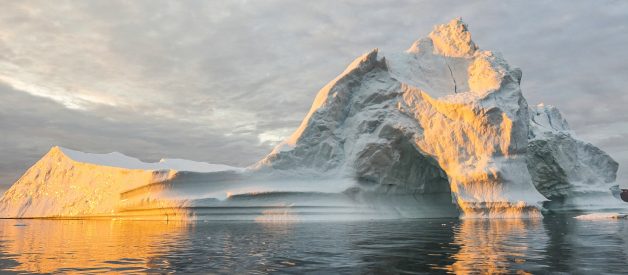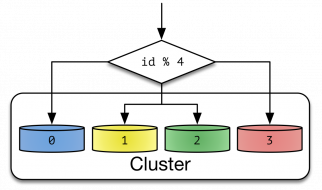?Climate Change is no longer some far-off problem; it is happening here, it is happening now.? ? Barack Obama
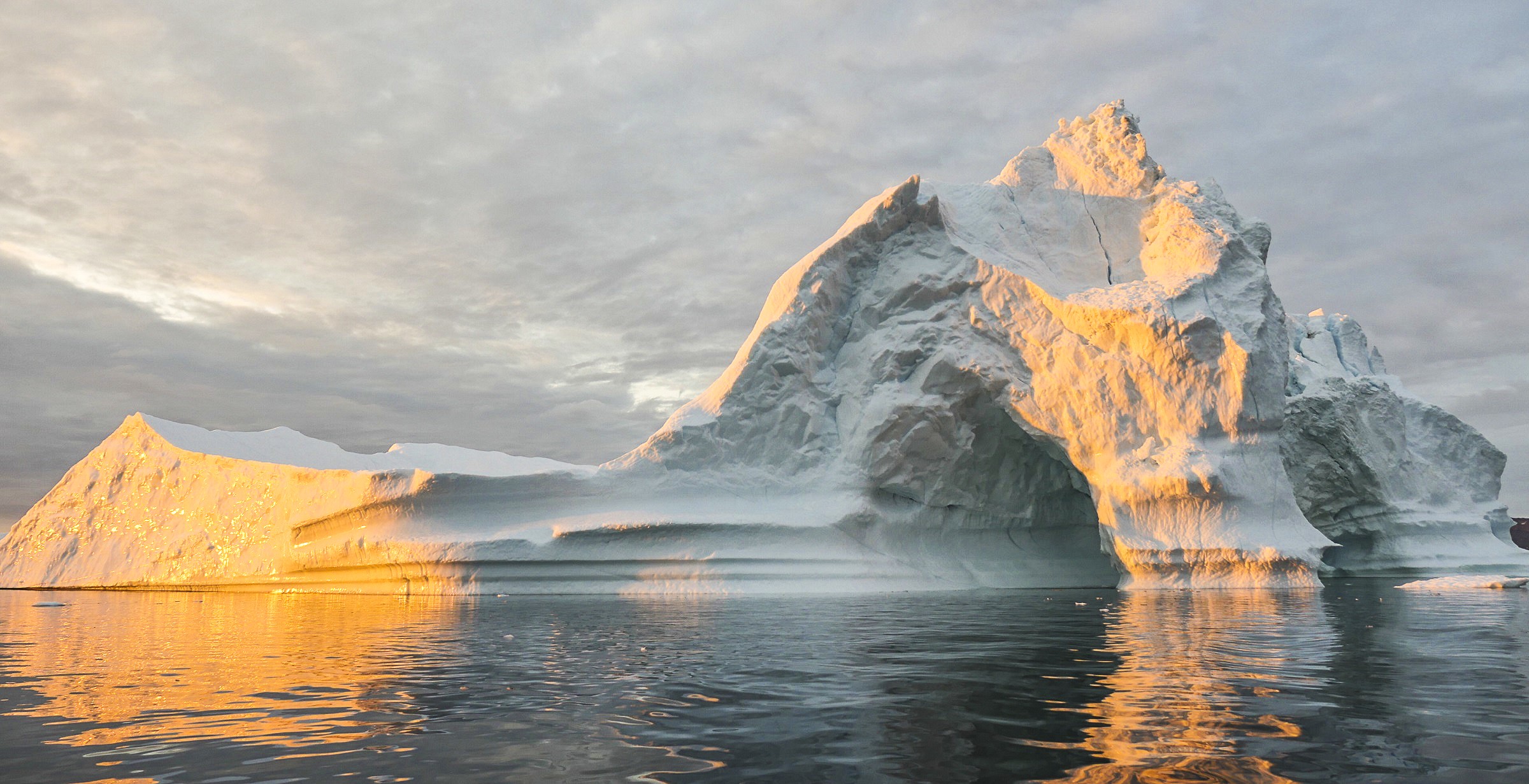 Melting glacier (NASA, via rawpixel)
Melting glacier (NASA, via rawpixel)
It took longer than expected, and arguably longer than what we wished for, but climate change is a growing concern that has been spreading to different sectors of society. The topic is reaching more people every day (let us not discuss at what speed rate), shining light on the growing risks of climate change. With information comes knowledge, which brings awareness and catalyzes action. ?Climate Action? is what now the title that brands the work in climate change research, adaption, mitigation, etc.
Following the growing concern directed to climate change, different initiatives have been popping up during the last decades, especially after the Rio 92 conference, and more recently the Paris Agreement.
Many times articles and the media generalizes the work of climate change related organizations, and we (environmental concerned individuals) often hear about ?the latest report?, ?the new scientific data?, ?growing green investments funds? etc., but sometimes the who?s behind such information is not clear. This article provides a quick overview of some of the organization related to climate change, focusing on a few big names in the areas of international governance, green investments, and civil society.
IPCC
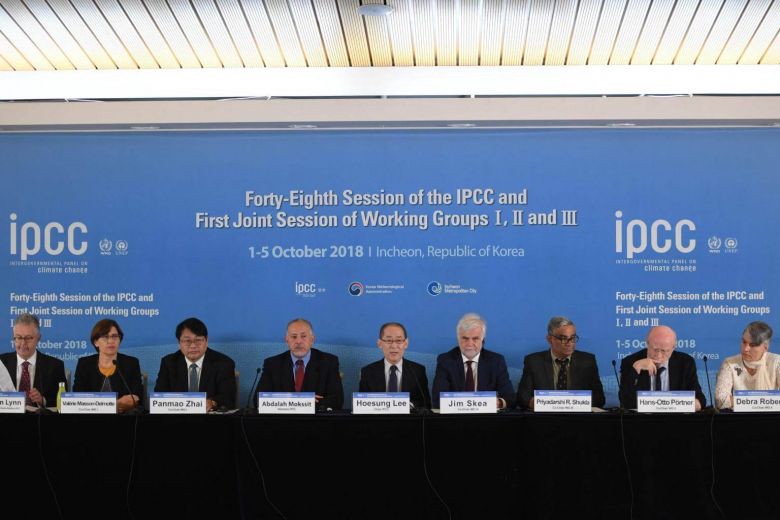 IPCC?s board at the 48th Session and First Joint Session of Working Groups, 1?5 Oct/2018 (via Straits Times)
IPCC?s board at the 48th Session and First Joint Session of Working Groups, 1?5 Oct/2018 (via Straits Times)
The Intergovernmental Panel on Climate Change (IPPC), created by the World Meteorological Organization in partnership with the United Nations Environmental Program, is the leading international scientific body related to climate change research. The IPCC has the mission to provide scientific assessments reports on climate change impacts, future risks, adaption and mitigation options. The reports published by the IPCC, written by leading scientists who volunteer their time and expertise as authors and reviewers of the reports, are the most reliable source of information on climate change. Three working groups form IPCC?s research frontline: Physical Science Basis, Impacts Adaption and Vulnerability, and Mitigation of Climate Change. The fact that all international organizations and treats use IPCC?s reports as the baseline for policymaking and climate change action puts the organization at the top of all climate change research initiatives.
UN Agencies
The United Nations have, of course, much to do with climate change due to its international nature. UN?s efforts with respect to climate change happen mainly through the abovementioned agencies, UN Environment Programme (UNEP) and World Meteorological Organization (WMO).
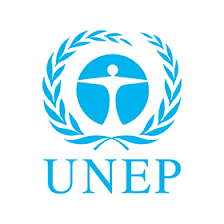 UN Environment Programme (via UNEP)
UN Environment Programme (via UNEP)
Based out of Nairobi, Kenya, UNEP is the leading international environmental authority. UNEP?s work focus on the environmental dimension of sustainable development, working in seven different thematic areas: climate change, disasters and conflicts, ecosystem management, environmental governance, chemicals and waste, resource efficiency, and environment under review. Many times working as the bridge between different players through conferences, secretariats, and multilateral programs, UNEP is known for assessing global, regional and national environmental conditions and trends, helping in the developing international and national environmental instruments, and strengthening institutions for the wise management of the environment. UNEP is responsible for the creation of programs that lead the climate change actions, as some examples, we can name the REDD+ program, the cross-sector Climate & Clean Air Coalition, as well as the Climate Technology Centre & Network.
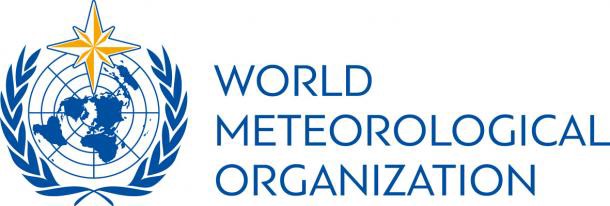 World Metereological Organization (via WMO)
World Metereological Organization (via WMO)
Weather, Climate and Water. Those are the cornerstones of work held by the WMO. Following the idea that these three environmental pillars follow no national boundaries, WMO?s efforts are dedicated to international cooperation on the state Earth?s atmosphere. WMO?s actions follow seven strategic priorities that range from disaster risk reduction to polar and high mountain regions and are divided between the coordination and organization of international research programmers, meteorological observations, and the application of meteorological, climatological, hydrological and oceanographic information in different activities. WMO is one of the leading organizations responsible collection of meteorological data used in reports such as the ones published by the IPCC.
Due to climate change?s cross-sectorial characteristic, the UN is active towards improving society?s awarness and adaption in many other ways, such as the organization of the Conference of Parties (COP), the main discussion ground related to environmental problems, the development of international campaigns and agendas, such as the creation of the SDG?s and the Agenda 2030, and much more.
Green Climate Fund
 Green Climate Fund (via greenclimate.fund)
Green Climate Fund (via greenclimate.fund)
Created in 2014, the Green Climate Fund(GCF) is a global financial fund focused on investments related to mitigation and adaptation initiatives, following the Paris Agreements goal of keeping climate change below 2 degrees Celsius. While paying particular attention to the needs of societies that are highly vulnerable to the effects of climate change, in particular, Least Developed Countries (LDCs), Small Island Developing States (SIDS), and the African States, the GCF builds a bridge between private investment and climate action. Investors interested in what has been called climate finance, meaning low-emission and climate-resilient development investments, can opt for grants, loans, equity or guarantees. GCF show some interesting concerns, such as ensuring 50:50 balance between mitigation and adaptation investments over time and 50% of the adaptation allocation for particularly vulnerable countries. The Fund?s current portfolio counts with 73 projects, reaching 217 million people, avoiding the emission 1.3 billion tCO2 avoided, through the investment of USD 3,5 billion.
Climate Investment Funds
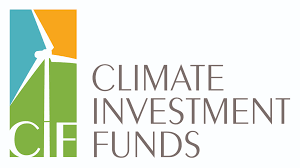 Climate Investment Funds (viar WeAdapt)
Climate Investment Funds (viar WeAdapt)
The Climate Investment Funds (CIF) is one of the world?s leading climate finance mechanisms. Founded in 2008, it represents one of the first global efforts to invest in a dedicated climate finance. The CIF emerged from recognition by world leaders that climate change and development are inextricably intertwined. The CIF?s creation also recognized a need to fill a gap in the international climate finance architecture ? to deliver climate-smart investment at scale. The CIF supports developing and emerging economies in shifting to low carbon and climate resilient development. Some of the programs part of CIF portfolio are the Forest Investment Program (FIP), Pilot Program for Climate Resilience (PPCR), and Scaling Up Renewable Energy Program in Low-Income Countries (SREP). Along with GCF, CIF represents the union between private investments and environmental concerns.
350.org
350.org ? Climage Change is About Power campaign
When it comes to civil society?s climate action, 350.org is one of the most outstanding initiatives. The US-based NGO was born in 2008 through the partnership made between a group of university friends and environmental activists author Bill McKibben. The name ?350? relates to 50 parts per million ? the safe concentration of carbon dioxide in the atmosphere. 350.org quickly became a planet-wide collaboration of organizers, community groups and regular people fighting for environmental causes. The organization uses the power of online campaigns, grassroots organizing and mass public actions to oppose new coal, oil and gas projects, fighting for a 100% clean energy goal. The main lines of action of 350.org consist in fighting fossil fuel industries, pressure governments into limiting emissions, and support communities confronting the impacts of climate change. As any NGO, they make a serious case when it comes to its principles, which are: We Believe in Climate Justice, We are Stronger When We Collaborate, and Mass Mobilizations Make Change. 350.org was one of the main organizations speaking up in major climate change-related events in the last decade, such as campaigns against large-scale fossil fuel companies, fracking in various cities in Brazil, and grassroots mobilizations before and after the Paris Agreement.
C40
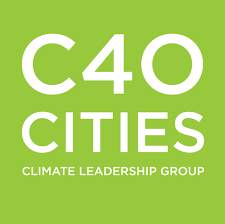 C40 ? Climate Leadership Group (viar C40)
C40 ? Climate Leadership Group (viar C40)
?Cities are where the future happens first? ? that is the motto that directs C40?s action. C40 is city-level NGO action on climate action, a global network of the world?s megacities committed to addressing climate change by developing and implementing policies and programs that generate measurable reductions in both greenhouse gas emissions and climate risks. The organization supports cities to collaborate effectively, share knowledge and drive meaningful, measurable and sustainable action on climate change. Founded in London in 2005 by the former mayor Ken Livingstone, C40?s portfolio now counts with more than 90 megacities acting to hinder climate change. It is estimated the C40 actions have already reached more than 650 million people and prevented the emission of 2.4 Gt CO2 equivalent. The organization is also responsible for the formation of 17 peer-to-peer networks and the development of many bonds between the cities part of the network. The interesting fact about C40 is their focus on working with mayors and their teams, what is normally only done by government officials. That innovative approach is responsible for developing top-down solutions that benefit a larger area in a less bureaucratic way and delivering results faster than what municipal structures normally do.
Many other non-mentioned organizations, ranging from local to international, NGO?s to multilateral development banks, grassroots active to online action, are also exponents in the fight against climate change. This article named a just few. Nevertheless, what links them all is their ?climate action?. Act. As an individual or part of an organization. Any organization. Climate action is what matters.
Speacial thanks to Nauman Haque.
